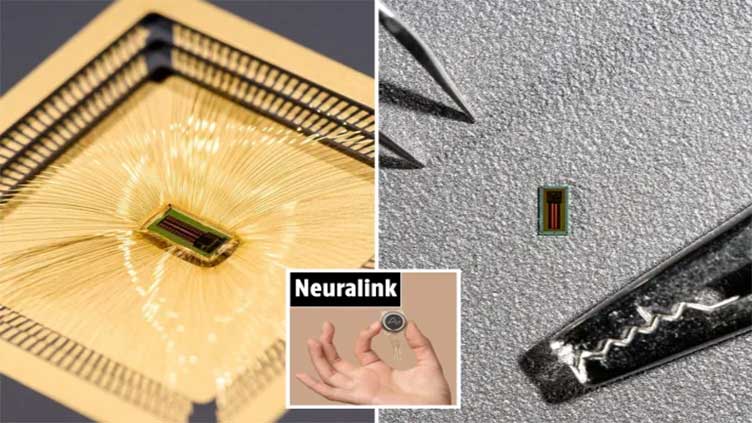Plans for tinier brain chip to be implanted into human heads unveiled

Technology
Chip could benefit those suffering from amyotrophic lateral sclerosis or spinal cord injuries
(Web Desk) - Elon Musk isn’t the only one looking to develop chips to be implanted into human brains, as a Swiss University unveiled plans to make one even smaller than the one from the Neuralink founder.
This week researchers from the Swiss Federal Institute of Technology Lausanne, also known as Ecole Polytechnique Federale de Lausanne (EPFL), revealed that they developed a “next-generation miniaturized brain-machine interface.”
The researchers have said that this BMI will be fully capable of communication between the brain and text outputs on a computer via the mini silicon brain chips.
It will specifically target those with severe motor impairments, once again giving them the ability and control for text communication.
For example, the researchers said the chip could greatly benefit those suffering from amyotrophic lateral sclerosis or spinal cord injuries.
Specifically, this inference processes neural signals that are generated when someone is thinking of writing letters, words, or sentences.
Using electrodes implanted in the brain, the neural activity is recorded and then processed through the chip in real-time.
This then produces an output of digital text on a connected screen.
Measuring only 8mm2 (square millimeters), the entire interface is made of two chips that record and process every request.
At this size, it is drastically smaller than the one developed by Musk’s Neuralink – which is around the size of a small coin.
The BMI was developed at Mahsa Shoaran's Integrated Neurotechnologies Laboratory at EPFL's IEM and Neuro X institutes.
Shoaran has praised the development of brain chips, saying it can turn neural activity from someone’s brain “into readable text with high accuracy and low power consumption.”
“This advancement brings us closer to practical, implantable solutions that can significantly enhance communication abilities for individuals with severe motor impairments,” Shoaran said in a statement.
As the chip is currently being developed, it can only decode up to around 31 different characters – however, the researchers have said they are confident this should increase to 100 characters.
They are currently looking to test the chip with different applications including handwriting recognition, speech decoding, and movement control.
The goal is to create an extremely versatile brain chip that can be tailored to individuals facing different neurological disorders.
Right now, the developing chip has a 192-channel neural recording system that uses a 512-channel neural decoder.


